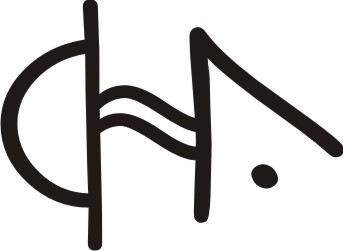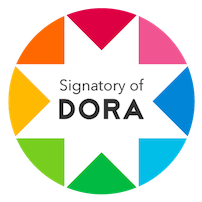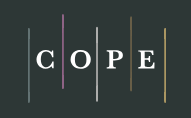Código de ética y buenas prácticas
Nuestras publicaciones adhieren a las normas de ética Científica expresadas en la Ord. 001/2023 CD-FFyL- UNCuyo y en el Manual de Gestión Editorial de Revistas Científicas de Ciencias Sociales y Humanas (p. 119) del Ministerio de Ciencia, Tecnología e Innovación Productiva de la Presidencia de la Nación de la República Argentina. Además los CHA, adhieren principalmente a DORA, ya que aluden a que las buenas prácticas y a la ética como el conjunto de normas que tratan de las buenas o malas acciones humanas, en relación al respeto entre las personas y no concernientes al orden jurídico.
Ética Editorial
Con el fin de garantizar los conflictos de intereses en el proceso científico, el Equipo Editor del IHA, establece como desición editorial que los autores que postulen a publicar en los CHA, deberán tener una conducta ética y responsable a fin de evitar posibles conflictos de interés al ser evaluados en sus publicaciones. Y de esta manera evitar artículos duplicados en otros medios electrónicos o trabajos similares (o autoplagio), debiendo el autor dar aviso al Equipo Editor si se ha incurrido en algunas de estas situaciones a fin de desidir cómo se solucionará. De eta manera se tomará como referencia los recursos publicados por Elsevier en su Kit de recursos de ética editorial para editores e y la Guía legal para editores sobre cuestiones de ética.
Fraude y otros comportamientos incorrectos
El arbitraje no es un sistema que permita la detección de fraudes. Los árbitros están razonablemente preparados para detectar el plagio o las falsificaciones ya que son expertos en el área temática que evalúan.
Los CHA consideran comportamientos indeseables a:
El fraude: el engaño deliberado, que puede incluir la fabricación de datos.
La falsificación: o modificación de datos se considera una violación a la ética de investigación. Falsificar es manipular los materiales de investigación, equipos o los distintos procesos que intervienen en ella, así como el cambio o la omisión de datos o resultados. La utilización de datos ajenos requiere de previa autorización de su autor.
La piratería: cuando ilegalmente se copian y utilizan las ideas de otros.
Mala conducta en la investigación
Se tomarán medidas para identificar y prevenir la publicación de artículos en los que se ha producido algún tipo de mala conducta, como plagio, o la manipulación de citas entre otros. Los CHA no promoverán conductas indebidas y no se permitirá ningún tipo de conducta indebida. Para tal caso los CHA siguen las pautas de COPE.
Reconocimiento de las fuentes
El reconocimiento apropiado de la producción científica de otros autores siempre deberá ser respetado. Los autores deben citar las publicaciones que han influido en la determinación de la naturaleza del trabajo presentado.
El plagio: Según la Real Academia Española Plagio, es la acción de copiar obras ajenas atribuyéndose maliciosamente la autoría. Por lo tanto, es copiar ideas, textos o datos sin hacer mención del Autor. El plagio implica la no originalidad y entiende como original a aquella producción científica, artística, que es producto de la creación de su autor.
Se considerará Plagio cuando: hay omisión de la autoría (voluntaria o involuntaria) y no se indica en el texto con comillas, aquello que ha sido tomado de otro texto.
Por paráfrasis entendemos, cuándo se producen pocos cambios en un texto que no es propio. Otros tipos de plagios se señalarán cuando en una cita las referencias del autor, han sido señaladas con inexactitud tanto en las referencia editoriales, como en las páginas. También se considerará plagio, la falta de comillas en términos o frases de un texto que se reproduce en forma textual.
Adherimos a lineamientos internacionales a través de COPE, Versión A4 horizontal teniendo en cuenta el Committee on Publication Ethics. A través de organizaciones cómo Council of Science Editors a partir de su Libro blanco de CSE sobre la promoción de la integridad en las publicaciones de revistas científicas, además del Libro Blanco sobre Ética de Publicaciones, y las Expresiones de gratitud. Entre otros lineamientos considermamos cómo Evitar el plagio, el auto-plagio y otras prácticas de escritura cuestionables: una guía para la escritura ética en: ORI, The Office of Research Integrity – ORI – Departamento de Salud y Servicios Humanos de los EEUU – Oficina de Integridad de la Investigación. Además los CHA adhiren a las políticas de Revistas de Acceso Abierto (DOAJ, https://doaj.org ) cuya misión es: organizar, mantener y desarrollar una fuente de información confiable sobre revistas académicas de acceso abierto en la web; para aumentar la visibilidad, difusión y apoyar el sistema de comunicación académica.
Los CHA utilizan herramientas informáticas provistas en Google y en Google Académico.
Code of ethics and good practices
Our publications adhere to the rules of Scientific ethics expressed in the Editorial Management Manual of Scientific Journals of Social and Human Sciences (p. 119) of the Ministry of Science, Technology and Productive Innovation of the Presidency of the Nation of the Argentine Republic. In addition, CHA adhere mainly to DORA, since they allude to good practices and ethics as the set of rules that deal with human good or bad actions, in relation to respect between people and not concerning the legal order.
Editorial Ethics
In order to guarantee conflicts of interest in the scientific process, the Editorial Team of the IHA establishes, as an editorial decision, that the authors who apply to publish in the CHA, must have ethical and responsible conduct in order to avoid possible conflicts of interest when being evaluated in their publications. And in this way avoid duplicate articles in other electronic media or similar works (or self-plagiarism), and the author must notify the Editor Team if any of these situations has been incurred in order to decide how it will be solved. In this way, the resources published by Elsevier in its Editorial Ethics Resource Kit for Editors and the Legal Guide for Editors on Ethics Issues will be taken as a reference.
Fraud and other misconduct
Arbitration is not a system that allows fraud detection. Referees are reasonably prepared to detect plagiarism or forgery as they are experts in the subject area they assess.
CHAs consider undesirable behavior to:
Fraud: Deliberate deception, which may include data fabrication.
Forgery: or modification of data is considered a violation of research ethics. To falsify is to manipulate the research materials, equipment or the different processes that intervene in it, as well as the change or omission of data or results. The use of external data requires prior authorization from its author.
Piracy: when the ideas of others are illegally copied and used.
Misconduct in the investigation
Measures will be taken to identify and prevent the publication of articles in which some type of misconduct has occurred, such as plagiarism, or the manipulation of citations, among others. CHAs will not promote misconduct and no misconduct of any kind will be permitted. In such a case, the CHAs follow the COPE guidelines.
Recognition of sources
The appropriate recognition of the scientific production of other authors should always be respected. Authors should cite publications that have influenced the determination of the nature of the work presented.
Plagiarism: According to the Royal Spanish Academy Plagiarism, it is the action of copying the works of others, maliciously attributing the authorship. Therefore, it is to copy ideas, texts or data without mentioning the Author. Plagiarism implies non-originality and understands as original that scientific, artistic production that is the product of its author's creation.
Plagiarism will be considered when: there is omission of authorship (voluntary or involuntary) and it is not indicated in the text with quotation marks, that which has been taken from another text.
By paraphrase we mean, when there are few changes in a text that is not its own. Other types of plagiarism will be pointed out when in a citation the author's references have been inaccurately indicated both in the editorial references and on the pages. Also considered plagiarism is the lack of quotation marks in terms or phrases of a text that is reproduced in textual form.
We adhere to international guidelines through COPE, horizontal A4 version taking into account the Committee on Publication Ethics. Through organizations such as the Council of Science Editors from their CSE White Paper on Promoting Integrity in Scientific Journal Publications, in addition to the White Paper on Publication Ethics, and Expressions of Gratitude. Among other guidelines we consider how to Avoid plagiarism, self-plagiarism and other questionable writing practices: a guide to ethical writing in: ORI, The Office of Research Integrity - ORI - US Department of Health and Human Services - Office of Research integrity. In addition, CHAs adhere to the policies of Open Access Journals (DOAJ, https://doaj.org) whose mission is to: organize, maintain and develop a reliable source of information on academic open access journals on the web; to increase visibility, dissemination and support the academic communication system.
CHAs use computer tools provided by Google and Google Scholar.


















_00.07_.55_2.png)




